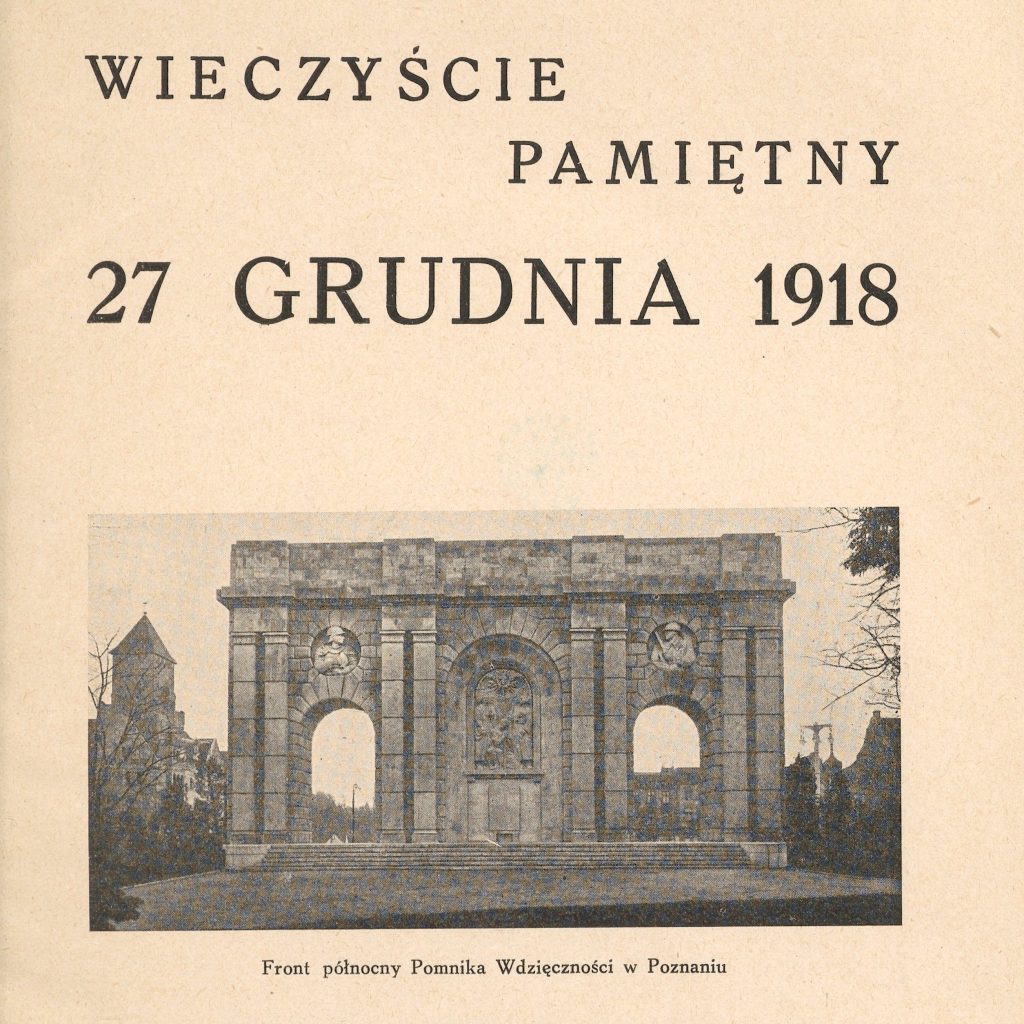
In 2021 the National Day of the Victorious Greater Poland Uprising is celebrated for the first time. This day commemorates the rebellion from 1918-1919. Celebrating this day, we pay tribute to the heroes of Greater Poland Uprising that freed this region from German occupation. They joined almost the entire Greater Poland to the Republic of Poland reborn after 123 years.
The Greater Poland Uprising broke out on December 27, 1918 in Poznań. It was the biggest independence rebellion on the territory of partitioned Poland that ended successfully.
Zbigniew Pilarczyk, Chief of Military History Department of the History Institute at Adam Mickiewicz University in Poznań seeks the success of the Uprising in well-emerging and aware Greater Poland society.
“There were very well-educated social groups. All patriotic work was aimed at all groups, not only at the chosen ones – as it was in the previous uprisings. The issue of independence was the issue of the entire society, everyone could join, acting for instance in reading rooms or in people’s banks, singing or gymnastic societies” – Zbigniew Pilarczyk said.
The political situation on the area of the partitioned Poland was also significant. As Pilarczyk said: „External factors were favorable for the Poles. Many independence activists saw an opportunity in the fact that the invaders were in conflict. The situation at the end of 1918 – especially when it comes to Germany, caused that the police and government supervision abated over Poznań Province. It was assumed at first that the uprising will break out at the beginning of 1919. What happened in Poznań in the last days of December 1918 may be called a coincidence”.
The date of December 27 was connected with the visit of Jan Ignacy Paderewski, who had come to Poznań the day before. Poles gathered in front of Bazar hotel, where this outstanding pianist and statesman stayed. The invader organized counter march. Its participants destroyed the headquarters of Supreme People’s Council Commissariat – legal Polish state authority, approved by Polish regional parliament. The first shot was fired before 5.00 p.m. – the uprising broke out. In the first phase of the uprising the Supreme People’s Council held talks that were to defuse the conflict with Germans. However, finally it appointed Stanisław Taczak as the temporary leader of the uprising. As a result of fighting on January 6, 1919 Poznań was freed. The insurgents took over Ławica airport then, thanks to which Poland gained access to several hundred airplanes. By mid-January the larger part of Greater Poland was freed.
At the end of January Germans started their offensive on the northern front. In mid-February they moved their central command headquarters to Kołobrzeg. It was supposed to indicate offensive plans against Greater Poland. Entente politicians came to Poles’ aid. On February 16, in Trier Germany and Entente countries signed a truce that acknowledged insurgents’ gains. The greater Poland’s front was acknowledged as the war front of allied countries. However, as Zbigniew Pilarczyk says: “The effects of the uprising are first and foremost the credit of insurgents, and not diplomatic efforts. If it had not been for the gains from the first weeks of the uprising, the truce in Trier would regard completely different area”. Based on the treaty of Versailles from June 28, 1919 the victory of Greater Poland’s insurgents was finally confirmed. Almost the entire Greater Poland was returned to Poland.
The text was written based on:
- https://www.prezydent.pl/aktualnosci/wizyty-krajowe/narodowy-dzie-zwycieskiego-powstania-wielkopolskiego,45257
- https://www.prezydent.pl/aktualnosci/wydarzenia/apel-o-ustanowienie-dnia-27-grudnia-swietem-panstwowym-u-prezydenta-rp,34474
- https://dzieje.pl/aktualnosci/powstanie-wielkopolskie-jedyna-tak-duza-udana-polska-insurekcja

